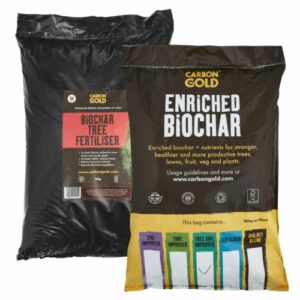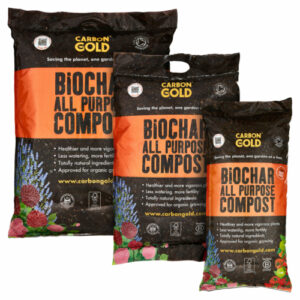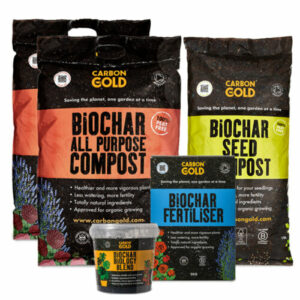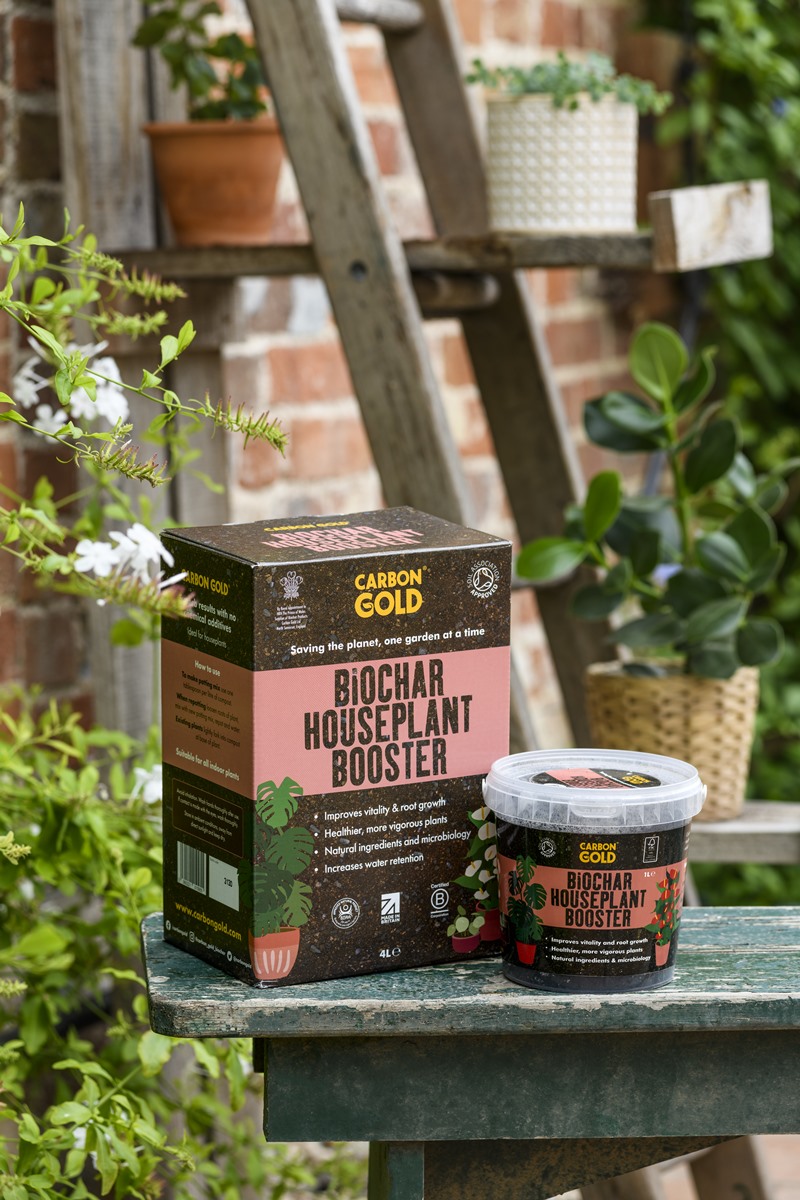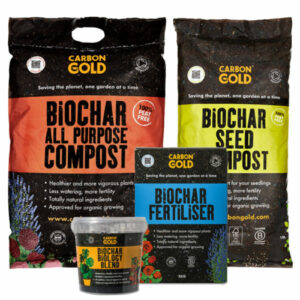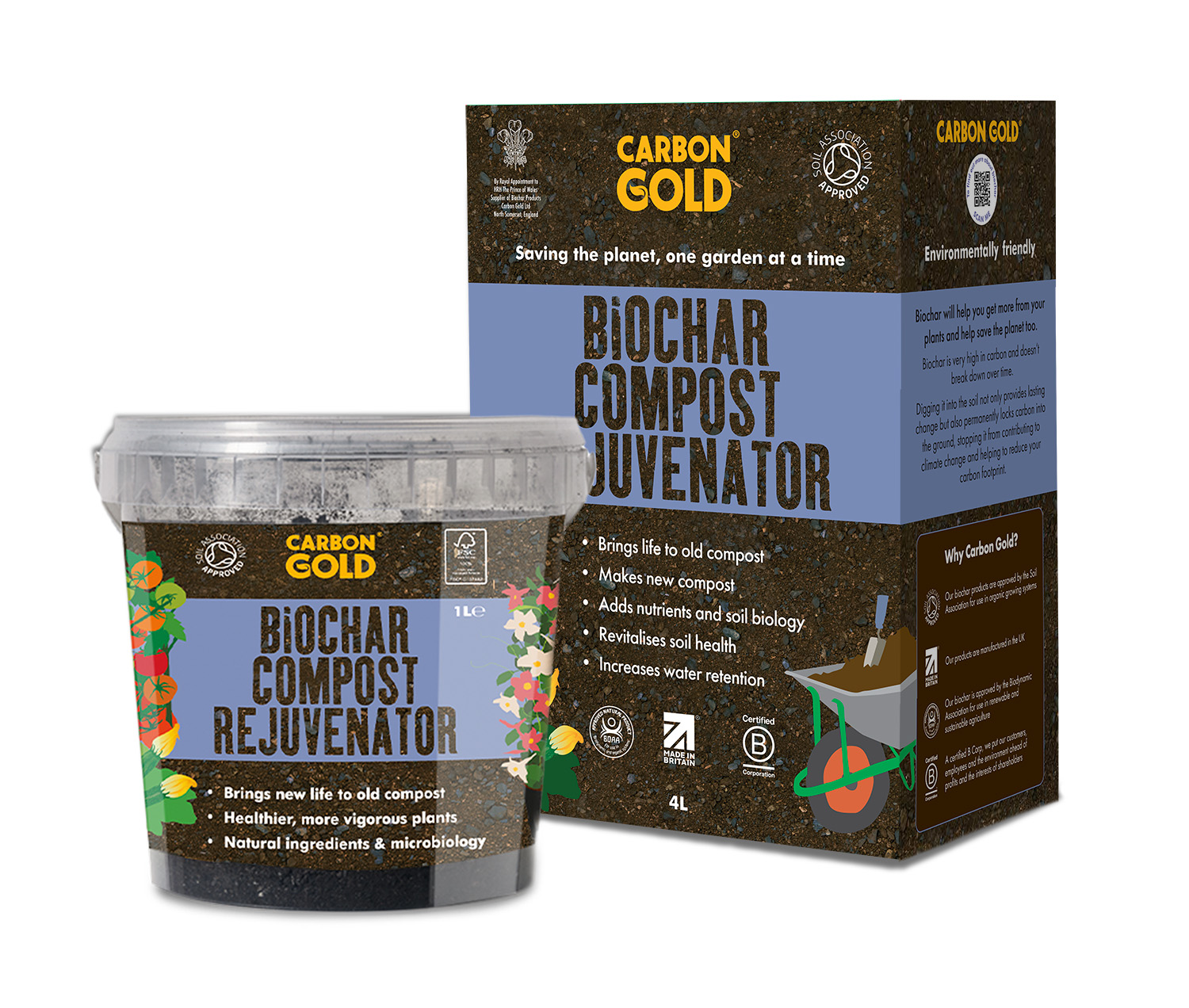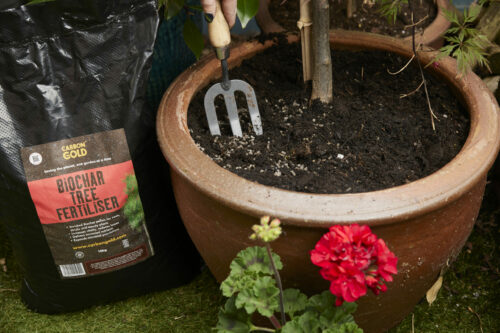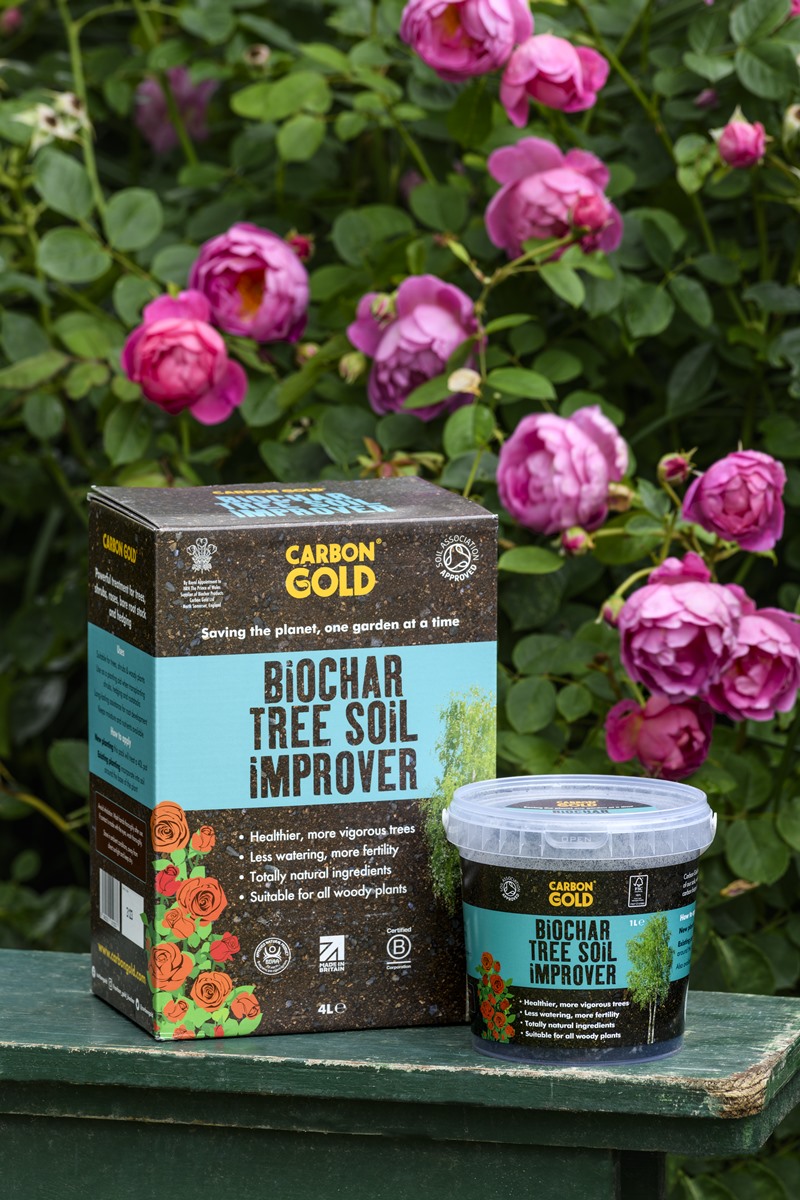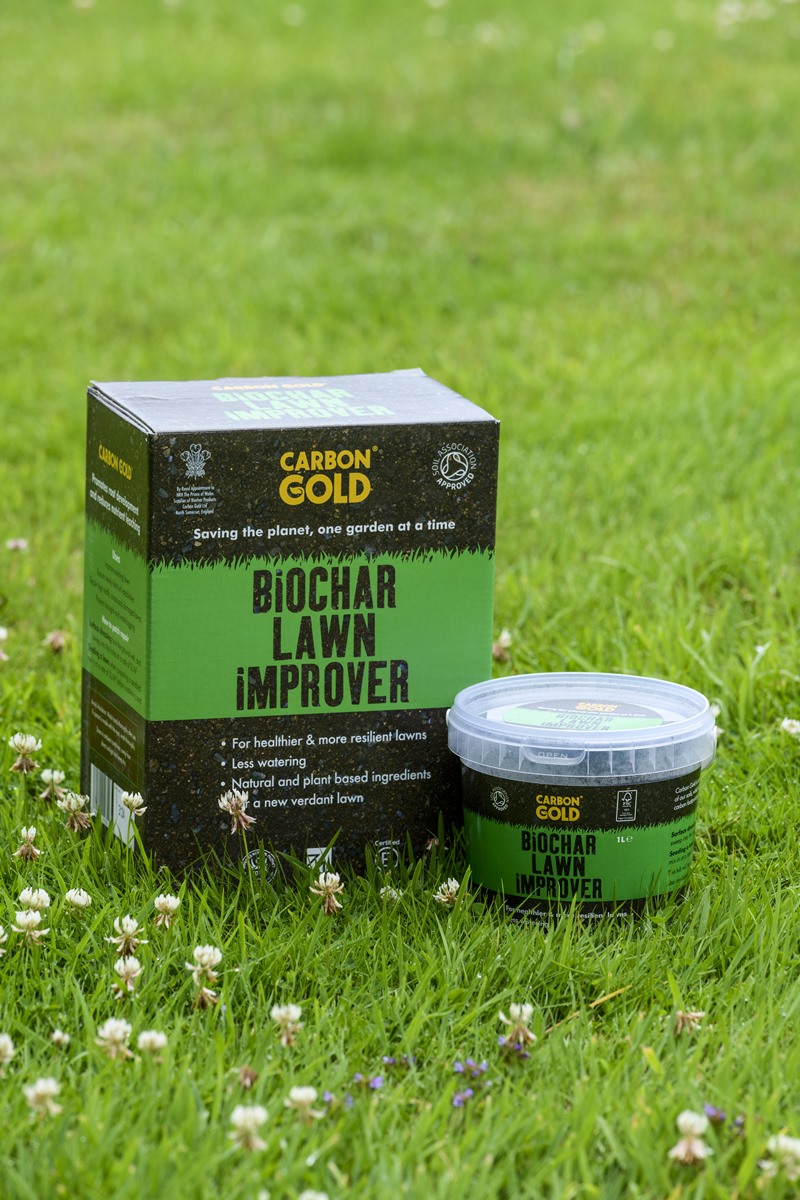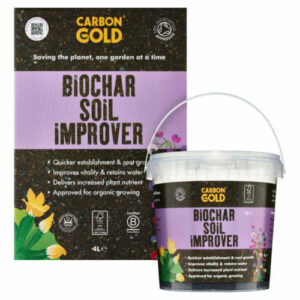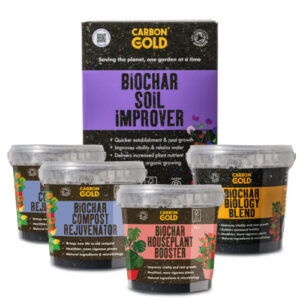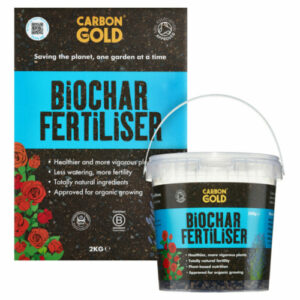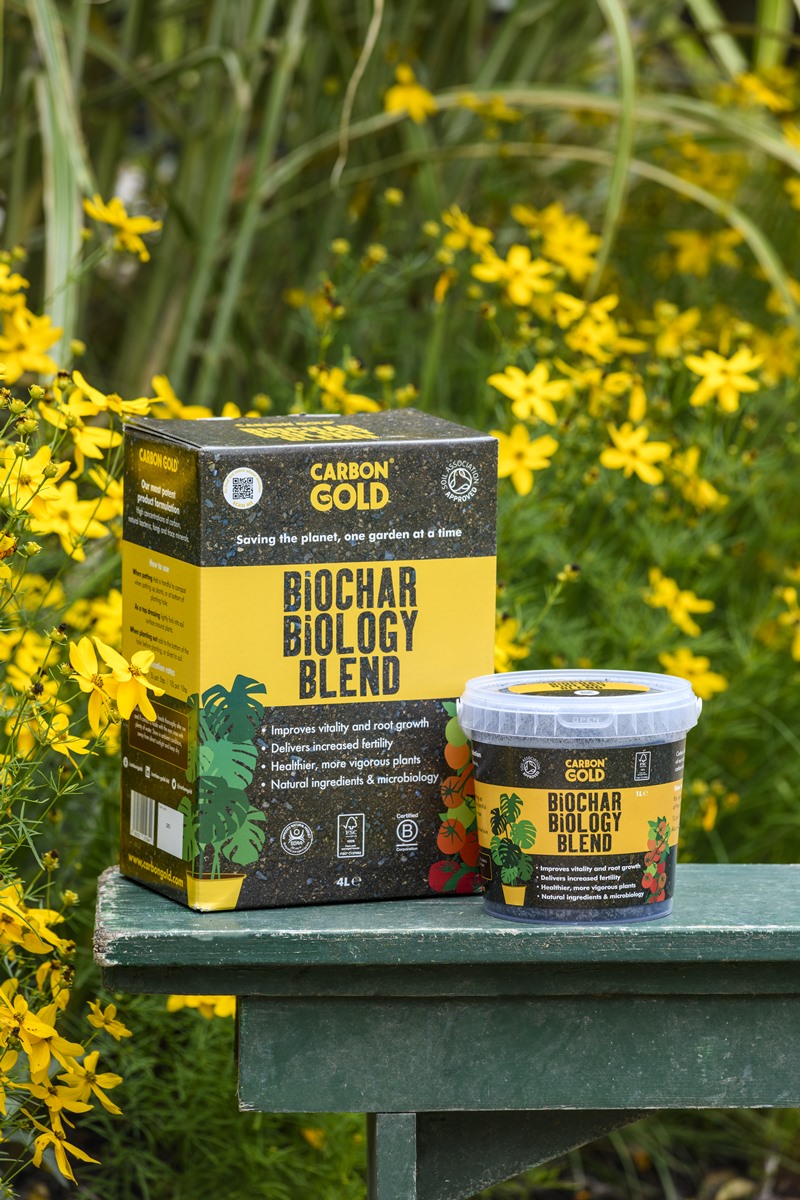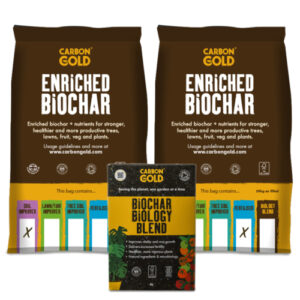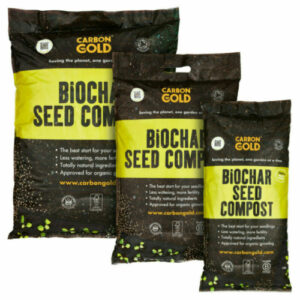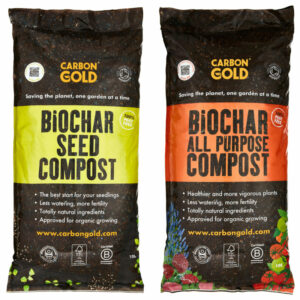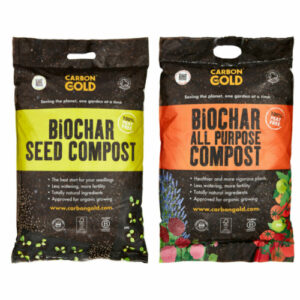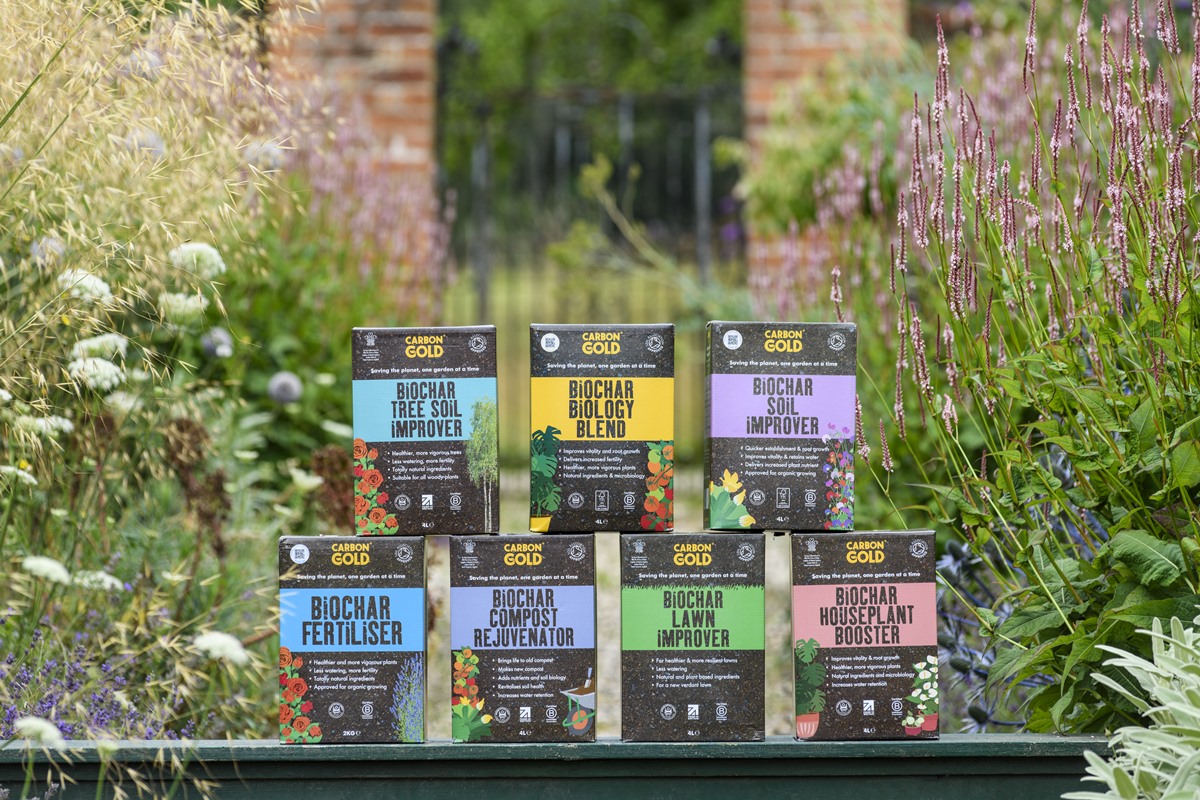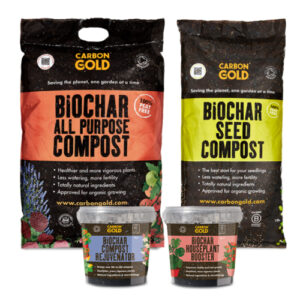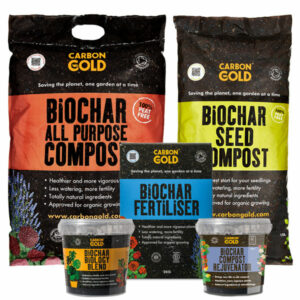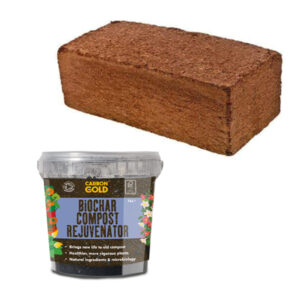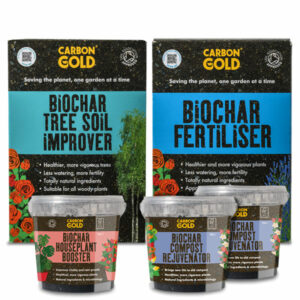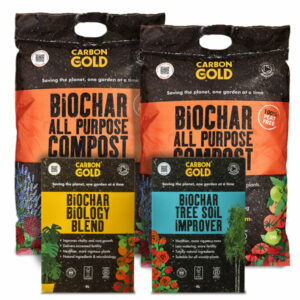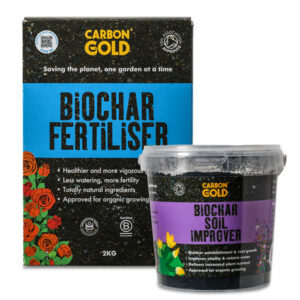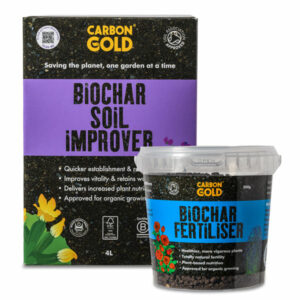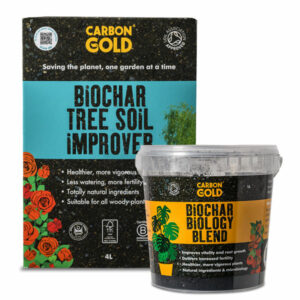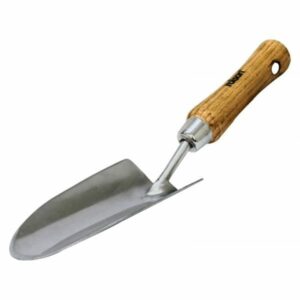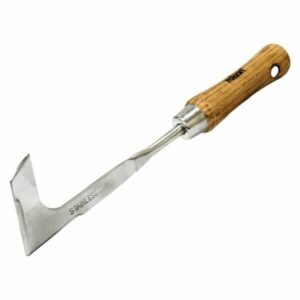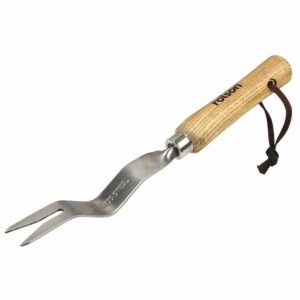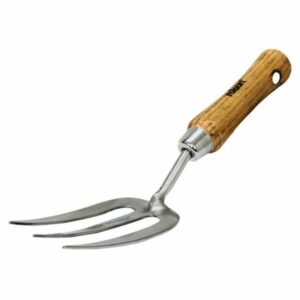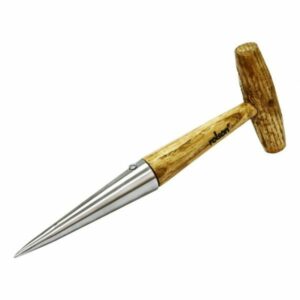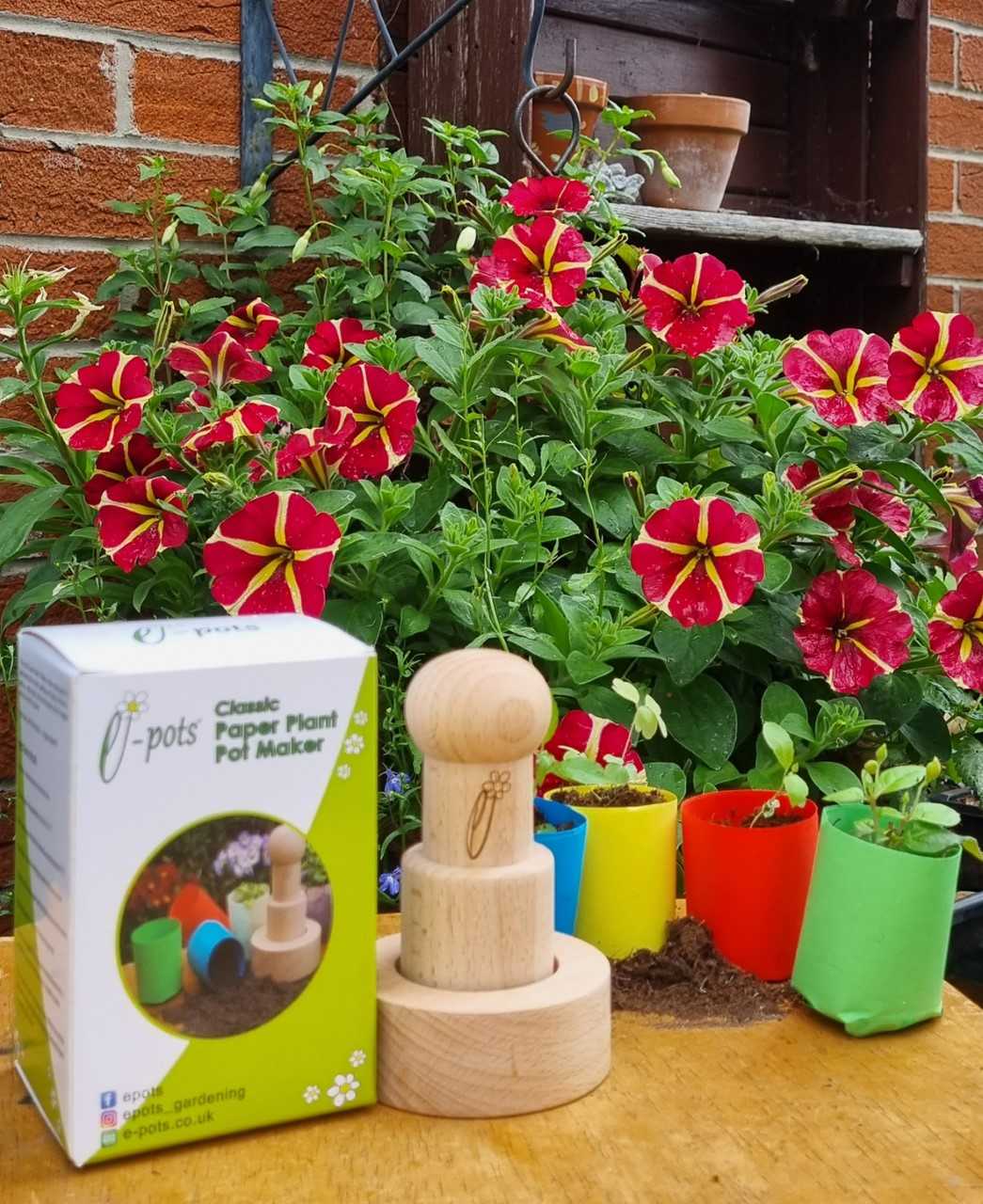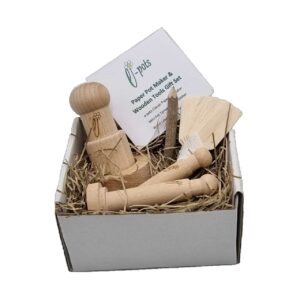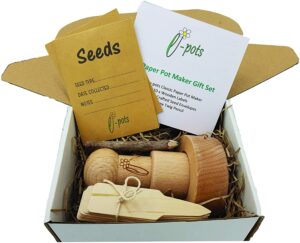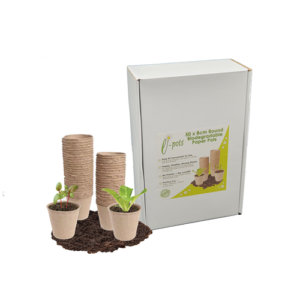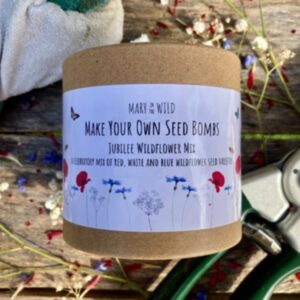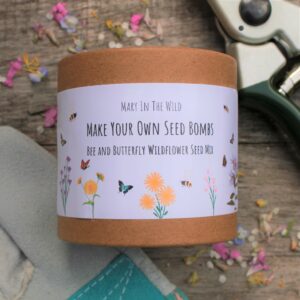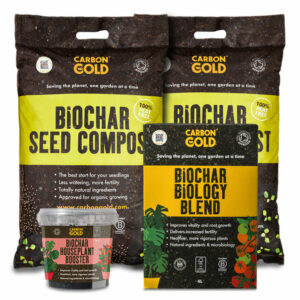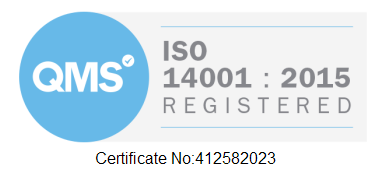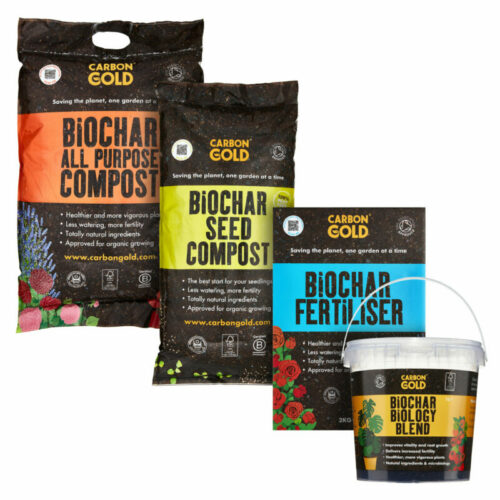How to Use Biochar
Frequently asked questions

Is Biochar safe for your garden?
There is no evidence that, despite its long history as a soil amendment, biochar, which is also known as black gold, is hazardous to humans, animals or plants. Remember though, when working with any type of gardening product, it’s always a good idea to use the relevant safety equipment. Our products can be safely applied in gardens with animals and children. Some pets may be attracted to some of the ingredients in our products – you can dig in the products to reduce the temptation – but it will not be harmful to them.
How does biochar affect soil?
Organic matter in soil is a vital part of how it functions, however in most cases when organic material breaks down in soil it can cause a number of problems such as loss of nutrients, loss of water retention and compacted soil.
Biochar has many benefits because it is so rich in carbon and does not break down in the soil. When added to soil it acts like a sponge holding onto nutrients and water, until they are needed. The biochar also aids beneficial soil microbes in the soil that help plants grow.
Do I need to soak or activate Biochar?
Biochar is ready to use right away as we have done the hard work for you. Carbon Gold biochar products are pre-packaged with all of the required nutrients and natural biology. That’s simple, isn’t it?
However, not all types of biochar are ready for use in this way. Most biochar products such as raw biochar or pure biochar do need to be ‘charged’. The big difference with Carbon Gold’s biochar products is that we have a ready to use biochar mix which is ready to use straight out of the box with no detrimental effects.
During storage, organic materials may develop a type of white mould on the surface, this is completely natural and harmless and is the natural biology in the product, and will disappear when the surface of product is agitated.
What type of plants benefit from biochar?
Generally, any plant can benefit from biochar in the soil around the root zone.. Our biochar has a pH of around 8 and thus is slightly alkaline. Acid loving plants may not favour a more alkaline soil although if you are trying to adjust your soil pH it is always best to test the soil in order to get the most accurate readings.
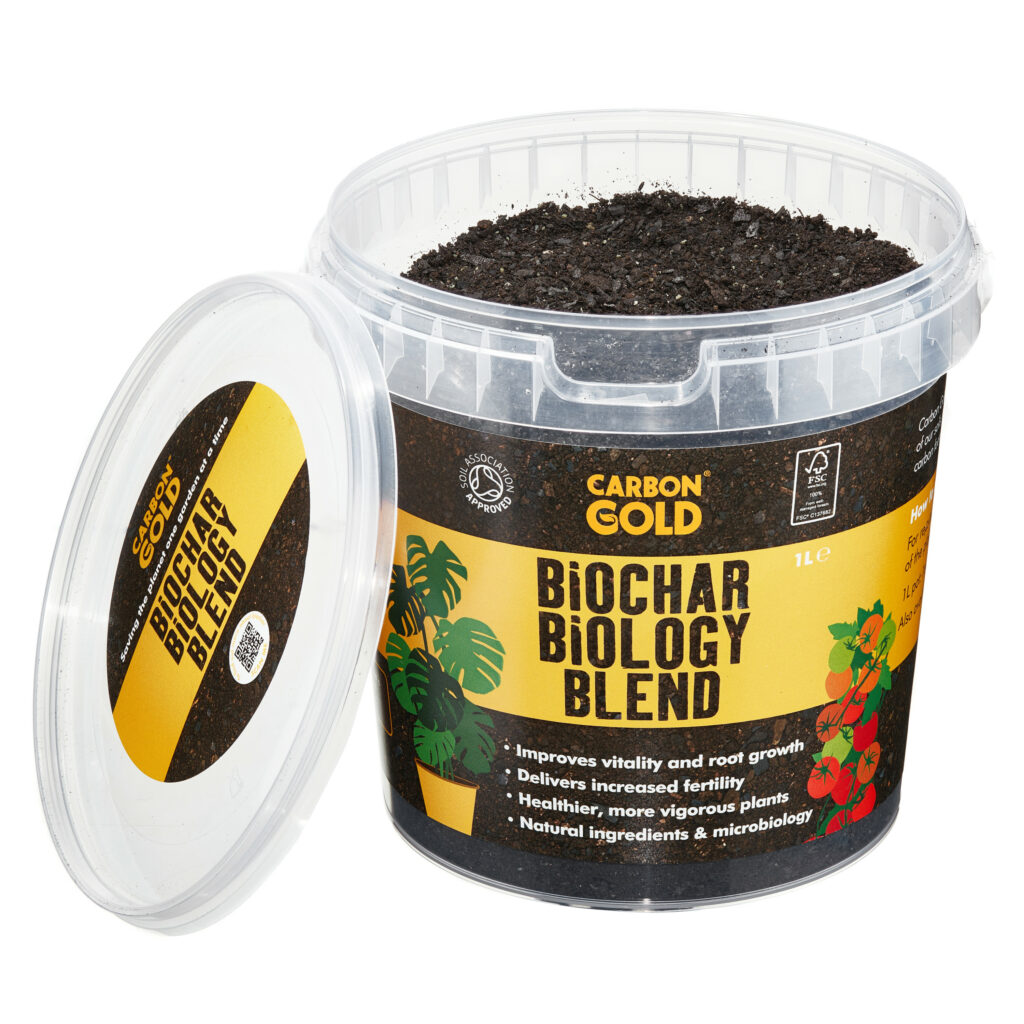
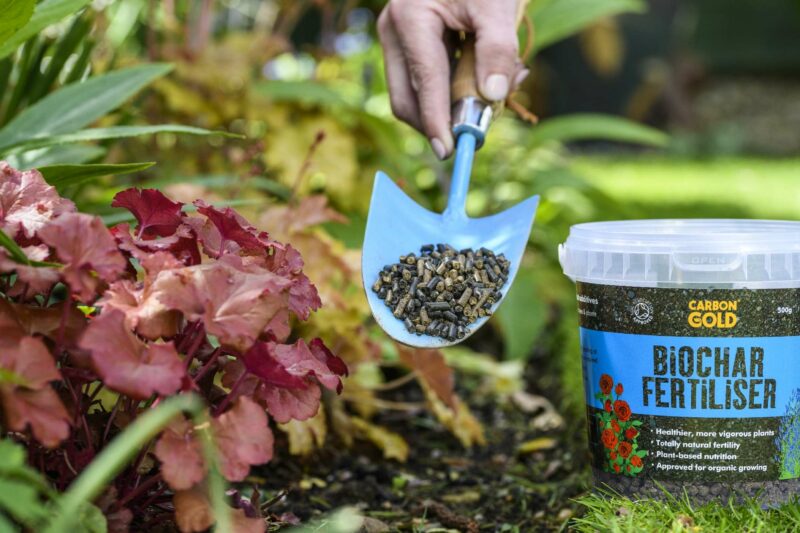
Is biochar a fertiliser?
Pure biochar is a material that helps trap carbon. It is not really a fertiliser, but some people do use it as a high nutrient supplement. Usually, you should think of biochar as an organic matter amendment for your garden, which means it will help add nutrients to the soil.
Our Soil Association approved Biochar Fertiliser has natural biology and NPK added, so you can use straight out of the box!
Is biochar better than compost?
When you put compost and biochar in a bucket, they look very different. But how do they work in soil?
Biochar is made from organic material by cooking it without oxygen. The process can be done by burning biomass such as wood to produce the charcoal-like substance that has many beneficial uses in the garden.
Composting is the process of breaking down organic materials into a rich soil amendment that boosts plant growth through improved nutrient levels and water retention.
Biochar does however help improve the compaction, fertility and water-holding capacity of soil, making it great for growing vegetables, trees, shrubs and plants. It can also be mixed into potting mixtures to provide additional benefits when growing houseplants or seedlings.
Where can I purchase biochar in the UK?
Carbon Gold Biochar products are available directly from this website, or from one of our valued stockists.
For more information on how biochar can be used in your garden or business, contact us today
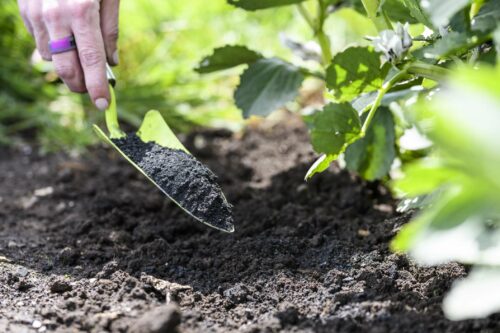
Which biochar products do I need?
Biochar works by improving the soil and in turn naturally enhancing plant health. We have many blogs in our Guides and Information section to help with how to use biochar in your garden
Biochar products to enhance every garden
£5 - £50 Gift Vouchers
Are your friends and family keen or budding organic gardeners or want to try eco-conscious…
Biochar Tree Care Bundle
Are you planting new trees or wanting to give your existing trees a boost? Scientifically…
Biochar All Purpose Compost
What makes Carbon Gold Biochar All Purpose Compost so impressive is that its organic and…
your Biochar
your Biochar
your Biochar
£9.99
Biochar Outdoor Planting Bundle
An all-round eco-gardening bundle containing all of our main products with 10% OFF and FREE…
Biochar Houseplant Booster
Are your houseplants looking a bit tired, and in need of some love? Our Houseplant…
your Biochar
your Biochar
£9.99
Biochar Essentials Bundle
This Biochar Essentials Bundle is the perfect starter pack, containing our Biochar All Purpose…
3 Tub Pick and Mix Tub Bundle
Easy, convenient and flexible; our Pick & Mix bundles are designed to give you the…
£29.97
Biochar Compost Rejuvenator
Our remarkable compost additive allows you to recycle & reuse your existing compost or grow…
your Biochar
your Biochar
£9.99
Tree Fertiliser
Carbon Gold's 10kg Biochar Tree Fertiliser is a premium, environmentally friendly solution designed to boost…
Biochar Tree Soil Improver
Carbon Gold Biochar Tree Soil Improver is ideal for transplanting or revitalising new and established…
your Biochar
your Biochar
your Biochar
£9.99
Biochar Lawn Improver
Unlock the path to the lawn of your dreams with Carbon Gold's Biochar Lawn Improver,…
your Biochar
your Biochar
your Biochar
£19.99
Biochar Soil Improver
Looking for a soil additive that will promote root development, improve soil structure and help…
your Biochar
your Biochar
your Biochar
£9.99
Spring Planting Bundle
Our Spring Planting Bundle give you everything you need to reinvigorate your old compost, boost…
Biochar Fertiliser
Using Carbon Gold Biochar Fertiliser pellets will give you superb results with no chemical or…
your Biochar
your Biochar
your Biochar
£19.99
Biochar Biology Blend
Unearth the professional grower's best-kept secret – Biochar Biology Blend, a powerhouse formulation that was…
your Biochar
your Biochar
£9.99
Biochar Allotment Bundle
Are you an allotmenteer? Are you new to gardening? Do you want to revitalise the…
4 Tub Pick and Mix Bundle
Easy, convenient and flexible; our Pick & Mix bundles are designed to give you the…
£39.96
6 Tub Pick and Mix Bundle
Dive into a world of simplicity, convenience, and flexibility with our Pick & Mix 6…
£59.94
750kg Biochar
The progression of biochar as a Negative Emission Technology and Nature Based Solution has been…
Biochar Seed Compost
Enhance your seed cultivation experience with Carbon Gold's Biochar Seed Compost. This coir-based compost is…
your Biochar
your Biochar
your Biochar
£9.99
1000L/450kg Biochar Soil Improver
Our pre-inoculated Biochar Soil Improver is ready to go straight in the ground with the…
1000L/425kg Biochar Lawn Improver
Carbon Gold Biochar Lawn Improver is perfect whether you are planning to give your existing…
1000L/450kg Biochar Tree Soil Improver
The most cost effective way of bulk buying our Biochar Tree Soil Improver in the…
10L Biochar Peat Free Compost Pick and Mix
Looking for a compost that is organic and 100% peat free? Carbon Gold Biochar All…
£59.94
20L Biochar Compost Pick and Mix
Looking for a compost that is organic and 100% peat free? Why not try our…
£38.97
4 Box Pick and Mix Bundle
Elevate your garden's potential and contribute to a healthier planet with Carbon Gold's ground breaking…
£79.96
6 Box Pick and Mix Bundle
Unleash the transformative potential of Carbon Gold's products to instigate profound, long-lasting changes in your…
£119.94
2 Box Pick and Mix Soil Improvement Bundle
Embarking on a journey of soil improvement is the simplest way to nurture your garden's…
£39.98
The Climate Change Garden
It's no longer gardening as usual. Already, we are seeing changes to our climate -…
Organic Planting Bundle
If you're serious about your gardening, then you know that healthy soil is the key…
Climate Friendly Gardening Bundle
Carbon Gold Biochar Climate Friendly Bundle is the perfect starter pack for gardener looking to…
Make your own Peat Free Compost Bundle
Concerned about paying to transport water that is in compost and removing peat compost from…
Garden & Tree Restoration Bundle
Are you looking at rejuvenating your garden and trees without having to replace your existing…
Tree Planting Bundle
Are you doing tree planting in your garden or allotment? There is scientific evidence that…
Fertiliser and Soil Improver Bundle
Have you ever heard of biochar? It's a soil improver that's made from burning organic…
Natural Soil Improvement Bundle
Our Natural Soil Improvement Bundle consists of two of the original products in our range.…
2 Tub Pick and Mix Organic Soil Amendment Bundle
Looking for an easy, cost-effective way to improve your soil's health and vitality? Look no…
£19.98
Tree Soil Bundle
Are you looking for a solution to improve the health of your trees and reduce…
Stainless Steel Hand Trowel with Ash Handle
Introducing the Rolson Stainless Steel Hand Trowel with Ash Handle CDU, the perfect tool for…
Stainless Steel Hand Weeder Knife Style Ash Handle
A Stainless Steel Hand Weeder is a gardening tool that features a sharp, stainless steel…
Stainless Steel Hand Weeder - Tongue Type
Introducing the Rolson Stainless Steel Hand Weeder Tongue Type with leather strap, the perfect tool…
Rolson Stainless Steel Hand Fork with Ash Handle
Rolson Stainless Steel Hand Fork with Ash Handle are now available directly from Carbon Gold…
Stainless Steel Hand Dibber with Ash Handle
This hand dibber is made from high-quality stainless steel, ensuring that it is durable, rust-resistant,…
Wooden Paper Pot Maker
This is the classic tool for eco-gardeners.Get ready to take your gardening game to the…
Paper Pot Maker and wooden tool set
The ultimate gift for the green thumbed friend or family member in your life! Our…
Pot Making Gift Set
Are you looking for the perfect sustainable gift? Look no further than the Wooden Pot…
50 x Biodegradable 8cm pots
Looking for an easy and eco-friendly way to plant your seeds? This pack of 50…
Make Your Own Butterfly Friendly Seed Bombs Kit
Grow your own patch of bee friendly wildflowers with our Make Your Own Seed Bombs…
Make Your Own Herbal Bee Seed Bombs Kit
Grow your own patch of bee friendly herbs with our DIY seed bomb kit. Our…
Coronation Wildflower Seed Kit
Grow your own patch of butterfly friendly red, white and blue wildflowers with our DIY…
Make Your Own Bee And Butterfly Friendly Seed Bombs Kit
Grow your own patch of bee and butterfly friendly wildflowers with our Make Your Own…
Organic Gardener's Seed Growing Trio
Introducing the Organic Gardener's Trio - our bundle of sustainable and eco-friendly products for your…

